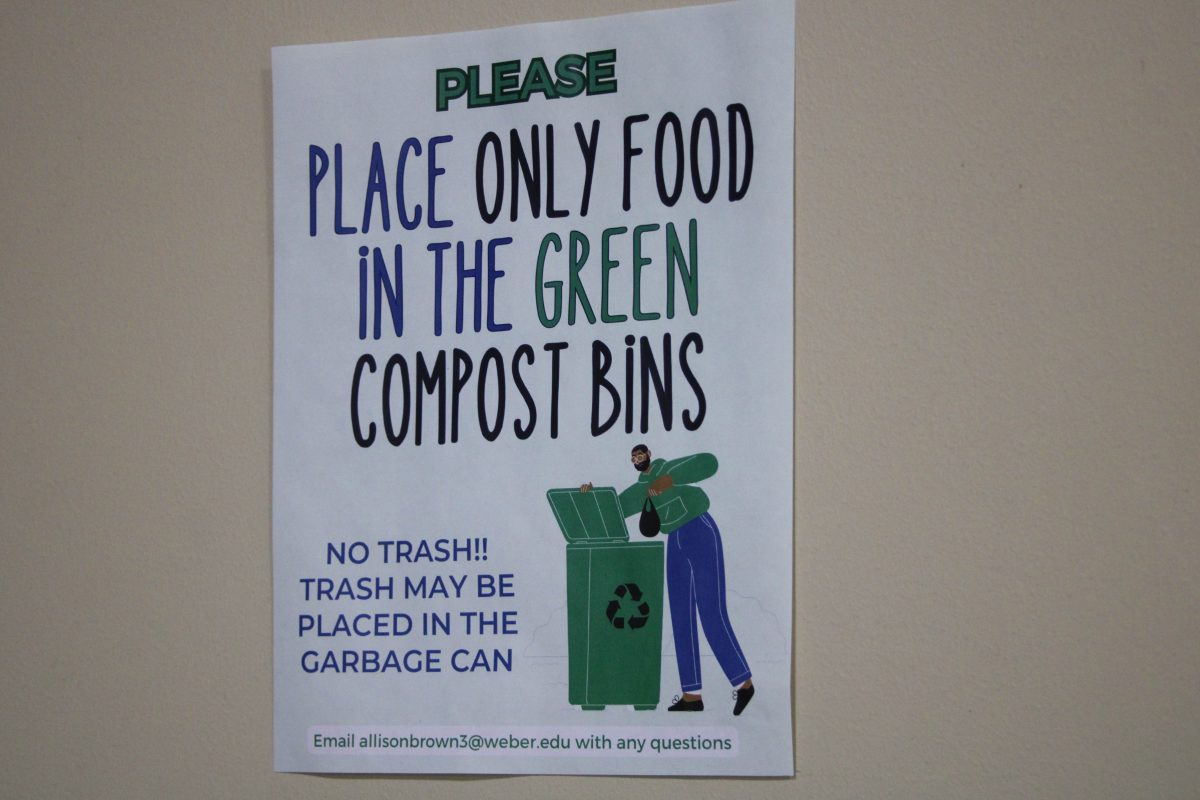
When it comes to competing in a brutal job market, Mikel Chertudi knows the secret, and he shared it with Weber State University students. Chertudi, the senior director and media/digital marketer for Adobe and an alumnus of WSU, spoke to WSU students last Wednesday as part of Career Cafe, a program headed by Career Services.
“I felt like I had one of the most valuable educations,” Chertudi said. “The way I define value is the money I invested and the money I got out of it . . . and the value is very high at Weber State.”
WSU is known for being a commuter school and for low involvement from students. Chertudi attributed this lack of student involvement to the many other opportunities WSU presented to him.
“This is not an active campus socially; as a result, those opportunities to get involved in extracurricular activities were in abundance,” he said. “It was not competitive. It was not difficult. I ran for the business senate position unopposed. The university allowed me a great opportunity.”
Chertudi has a long history in marketing, managing and being involved in the hiring process. He shared some insights into what he has learned and observed throughout his career with WSU students, calling them the “top 10 rules for fueling your career and getting the jobs you want.”
The first is “know what is important to you.” Chertudi urged students to figure out what kind of lifestyle they want and to align that with their passion.
The second is to “build a flexible career plan.” This step involves asking a lot of questions. It is an opportunity to evaluate oneself, for a person to find out what they want and where they want to go.
The third is to “get relevant experience now.”
“Validate the experience that you think you want to pursue as a career,” Chertudi said. “(It is a) total disadvantage if you don’t have that internship, part-time work or full-time work.”
The fourth is to “engage in extracurricular activities.” Chertudi advised getting involved with clubs, student governments and associations, of which WSU offers a variety.
The fifth is to “achieve a strong GPA.” However, Chertudi doesn’t advocate putting this ahead of everything else in priorities.
“People may think getting a 4.0 or a 3.9 is more important than having relative experience,” he said. “I promise you it is not.”
Chertudi said that if an employer sees an applicant has great work experience, leadership skills and extracurricular activities, it will make he or she a much stronger candidate than a high GPA will. Chertudi did stress that students shouldn’t forget about their grades, which are still important, but those other things help them stand out and show they are prepared for important positions.
The sixth is to “create your personal brand narrative.” This step should be easy. Chertudi said people like to talk about themselves, and this is the time to do it. Interviewees can talk about all the experience they have acquired, the clubs they have been part of, the differences they have made, and finally, if it is strong enough, their great GPA.
The seventh is to “quantify and qualify your resume.” Numbers add emphasis to a resume and credibility in an interview. If a student has individually made a difference in a large or small way and they can quantify that, they will be moved to the top of the heap.
The eighth is to “create a top 20 list and do your research.” Depending on the geographic location where one desires to live, students need to do their research. If they want to be the CEO of a Fortune 500 company in Utah, they have very little options. Students need to understand their location and the needs of the job market.
The ninth is to “conduct informational interviews.”
“You network with employees and hiring managers,” Chertudi said. “You take them on informational interviews. You take them to breakfast — ‘you got to eat, right? Let me take you to breakfast.’” This can be an opportunity to ask questions and research the company.
The 10th is to “drive the interview conversation.”
“Tell your brand story, the 3-5 points,” Chertudi said. “Don’t wait for the questions. Ask great questions. I have a 2-2-2 rule: two questions about the company, two questions about the team or department, and two questions about the specific role.”
The 11th step, “ask the last question,” is Chertudi’s secret weapon, one he said he wants all job seekers to take.
“’Now that you’ve had a chance to get to know me, my experience and qualifications, where would you place me in the candidate pool? Top 1, 2, 3, lower? What could I do or what would I need to close the gap?’ If they are honest with you and you can take the feedback, they will tell you why you won’t get that job.”
http://www.youtube.com/watch?v=6OZAMj8GvsE&feature=c4-overview&list=UU2b9xoEG9EmDNrD-QJc3icA















